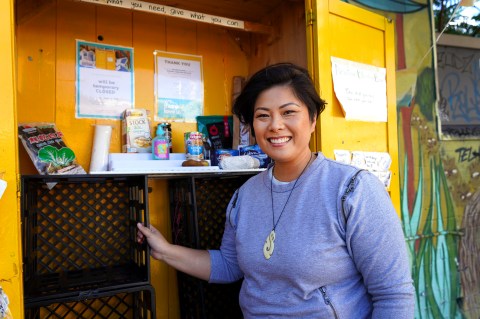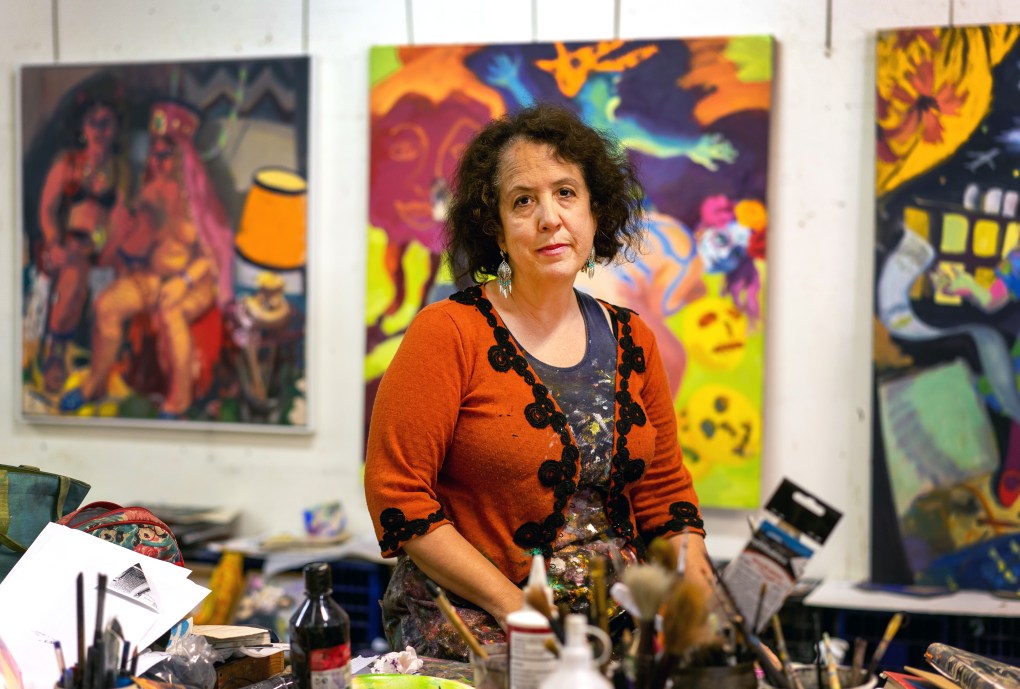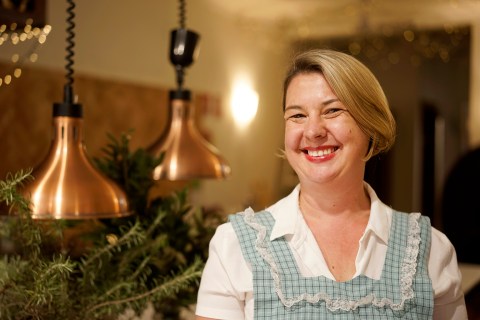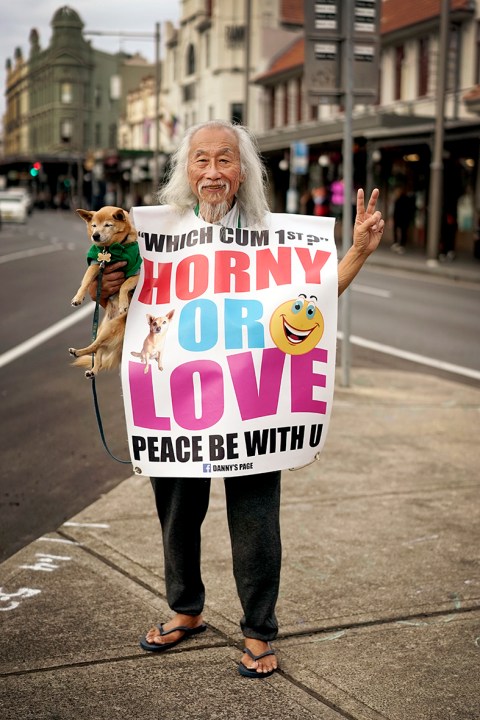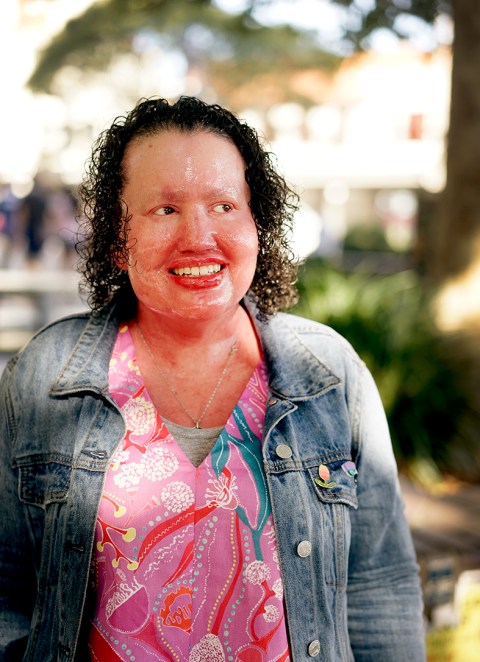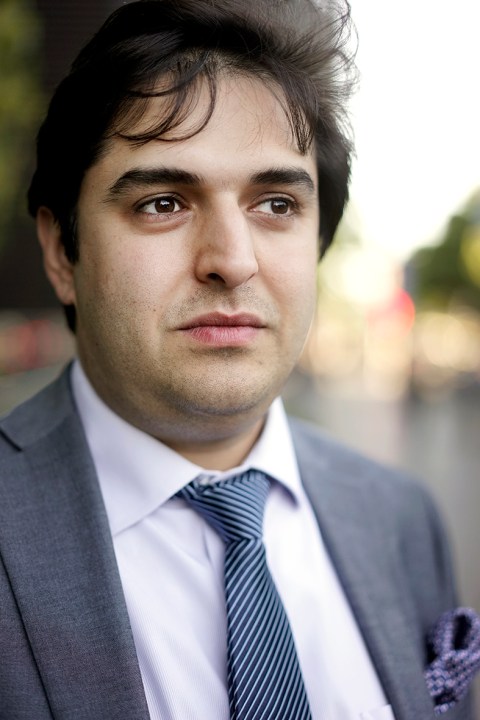‘Initially I was in mourning when we decided to pause the Blessing Box. It’s something that we spontaneously just started but now I see how much it works and how many people it’s helping. I’m scared for people who need it, but I’ve learnt from the Blessing Box that things work out. I just have to trust what happens.
‘A year ago, when we started, we had more donors than people taking from it. It was something nice and everyone really connected with it. On Day 1 we had whatever was in our pantry which was nothing really. Five days later I had to put more shelves in because it was overflowing with donations. At that time, the Blessing Box would be full for four days.
‘When JobKeeper was announced but hadn’t kicked in yet, people had been out of a job for about three months, and they were on their last legs. At that time, we saw a high influx of people needing food. It became 24 hours’ turnaround until the shelves would be cleared. A month later – around May or June last year, the turnaround become about half a day. A year later we’re looking at around a 20–30-minute turnaround. If it’s full up from some of our amazing donors, every bit of it will go within about two hours.
‘I think people who are taking now are mostly immigrants and a lot of elderly – that’s heartbreaking; seeing a frail person taking from there. Even prior to COVID, the pension is not enough to live off. They’re struggling – pensioners use the Blessing Box as a top up in between payments. It’s a systemic problem. It’s sad – these people have given so much to life and this world – they shouldn’t be living this way.
‘The Blessing Box is really just a conduit – it’s an empty cupboard at the end of the day. What has come of it – which I think is what the community sees – is the energy that comes from it.
‘Sunday 30th May will be the last day of the Blessing Box. On Monday we’ll take it down and it will go into storage while we try to find a new home for it. I hope when it finds a new home, that it will be sustainable throughout the years and I’m hoping that even more of these will pop up in suburbs. This is a proof of concept that this works. I wonder if the world, or this community, or Council think that this is the norm and see how this could work on a long-term basis.’

